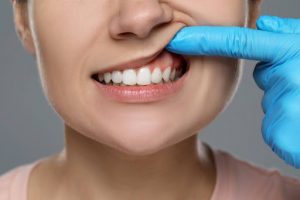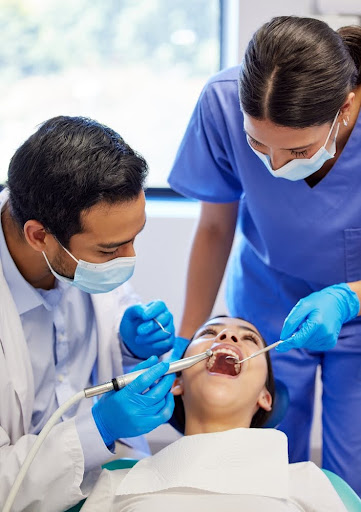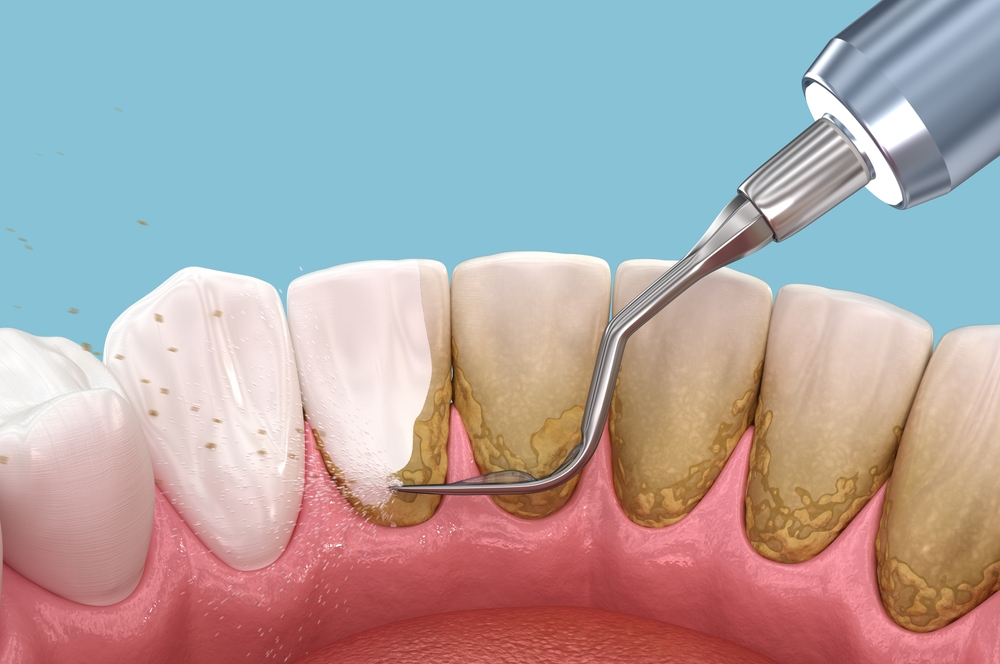Preventive Dentistry in Pembroke, ON
Protect the Integrity of Your Smile With Dr. Munro
At Parkview Dental, our professionals proudly serve patients in Riverview, Chalk River, and Petawawa. Call our Pembroke dental team at (613) 735-2336 to discover our preventive treatments and commitment to keeping your smile looking and feeling its best!
 Understanding Dental Cleanings
Understanding Dental Cleanings
Dental cleanings involve a thorough examination of the teeth, gums, and surrounding oral tissues. Our experienced dental hygienists at Parkview Dental utilize specialized tools to remove plaque and tartar build-up, ensuring a clean and healthy mouth. During the cleaning, we assess gum health and identify any potential concerns, making it a vital component of your oral care routine.
Unique Technologies for Enhanced Dental Cleanings
At Parkview Dental, we embrace advanced dental technologies to provide the best experience for our patients. Utilizing tools such as iTero intraoral scanners allows for immediate and precise imaging of your teeth, enabling better treatment planning. Digital impressions improve comfort and accuracy compared to traditional molds. This integration of technology enhances the effectiveness of your dental cleanings and ensures you receive the highest standard of care.
Additional Benefits of Choosing Parkview Dental
Parkview Dental is known not just for its comprehensive dental services, but also for our commitment to creating a friendly and accommodating environment. Dr. James Munro and our highly trained staff focus on personalized patient experiences, ensuring you feel comfortable and valued.
We also understand that many patients face anxiety regarding dental visits. To help alleviate stress, we offer sedation dentistry options. Whether it’s your first visit or you’re returning for routine care, our aim is to make you feel at ease throughout every step of your dental journey.
The Importance of Regular Dental Cleanings
Having your teeth cleaned isn’t merely about aesthetics; it plays a significant role in preventing more serious dental conditions. Regular cleanings can help avoid issues like cavities, gum disease, and even tooth loss. Additionally, maintaining regular dental visits supports overall health by facilitating early detection of systemic health problems linked to oral health.
- Preventive Care: Regular dental cleanings act as a safeguard against future dental complications. By visiting your dentist at least twice a year, you can help ensure that plaque build-up is minimized. This proactive approach helps prevent decay and gum disease before they become significant concerns.
- Health Monitoring: During your visit, our dental team assesses not only your teeth and gums but also checks for any abnormalities that may suggest an underlying health issue. For instance, the early detection of oral cancer can have a profound impact on treatment outcomes. Regular check-ups allow for continuous monitoring of your oral health.
- Education on Oral Hygiene: At Parkview Dental, we take the time to educate our patients on effective oral health strategies. During your cleaning appointments, our staff will guide you on the best practices for brushing and flossing, ensuring that you can maintain your oral health between visits.
- Enhancing Smile Aesthetics: A professional teeth cleaning can dramatically improve the appearance of your smile. By effectively removing surface stains, your teeth will appear brighter and cleaner, contributing to a more confident smile.
- Reduction of Other Health Risks: Studies have established a link between gum disease and various other health issues, including heart disease and diabetes. Regular cleanings help to reduce the risk of these conditions by maintaining overall oral health.
What to Expect During Your Dental Cleaning
When you arrive at Parkview Dental in Pembroke, ON, here’s what you can expect during your dental cleaning appointment:
- Initial Examination: Our team will start with a visual exam, looking for signs of dental problems such as cavities or gum disease.
- Plaque and Tartar Removal: Using specialized instruments, our hygienists will carefully clean your teeth, removing plaque and tartar that brushing at home might have missed.
- Polishing: After cleaning, we polish your teeth to remove stains and give them a smooth finish.
- Fluoride Treatment: Depending on your dental needs, we may apply a fluoride treatment to help strengthen your enamel and protect against cavities.
- Post-Cleaning Review: Finally, our team will discuss the results of your cleaning and any necessary follow-up treatments. If Dr. Munro notices any changes that need to be addressed, such as developing cavities, loose teeth, and more, you’ll sit down with him one-on-one to discuss dental treatment options.
Average Cost of Dental Cleanings
The national average cost for routine dental cleanings in Canada varies depending on several factors, including location, practice experience, and the specific dental services required. Typically, the price for a basic dental cleaning without insurance ranges from $75 to $200.
Factors Influencing Cost
Several elements can influence the overall cost of your dental cleaning:
- Type of Cleaning: The general cleaning procedure is often less expensive than specialized cleanings, like deep cleanings, which may be needed for patients with gum disease. Deep cleanings typically range from $150 to $300, depending on the extent of care required.
- Insurance Coverage: If you have dental insurance, your plan may cover up to 100% of preventive care, including routine cleanings. It’s essential to check your specific policy details to understand your coverage limits, potential co-pays, and any deductible requirements.
- Location: The cost of dental services can vary significantly based on geographic location. Urban areas may have higher fees compared to rural settings, reflecting differences in living costs and dental practice overheads.
- Your Dentist’s Experience: The expertise and experience level of your dentist can also play a role in treatment costs. More experienced dentists may charge higher fees due to their advanced skills and training.
Financing Options
At Parkview Dental, we believe financial considerations shouldn’t prevent you from receiving necessary dental care. We offer several dental financing options to assist patients in managing costs effectively. If you require dental work but are concerned about the costs, our team is happy to discuss payment plans that allow you to receive treatments when you need them most.
Frequently Asked Questions
How often should I get a dental cleaning?
What happens if I skip a dental cleaning appointment?
Can children get dental cleanings?
Do I need to do anything special to prepare for my dental cleaning?
Further Care for Your Dental Health
In addition to regular cleanings, we encourage patients to engage in daily oral hygiene practices at home. Brushing twice a day and flossing regularly are crucial components of good oral health. Together with routine visits to Parkview Dental, these practices will help you maintain a healthy smile for years to come.
Call us today at (613) 735-2336 to schedule your dental cleaning appointment. Our compassionate team is ready to provide you with exceptional dental care in Pembroke, ON. If you live in areas like Petawawa, Deep River, or Chalk River, we welcome you to experience our patient-centered dental services. Don’t wait; take charge of your dental health today!
By prioritizing dental cleanings and overall oral health, you are investing in a future of wellness and confidence. Get in touch with us today to arrange your visit and join our family of satisfied patients in Pembroke and the surrounding areas. Your smile deserves the best!

 Understanding Dental Cleanings
Understanding Dental Cleanings
